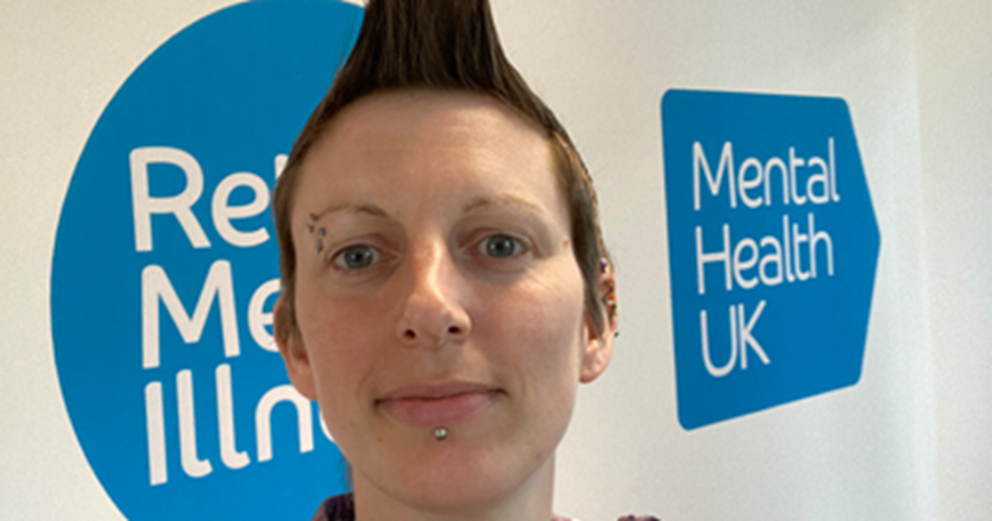Camden and Islington advocacy service
c/o28 Albert EmbankmentLondon SE1 7GR View on map
Mon - Fri: 9.00am - 5.00pmSat and Sun: Closed
Camden and Islington advocacy service provides comprehensive advocacy support to people facing challenges, discrimination, or complex decisions about the care they receive.
Everyone deserves to have their rights acknowledged, respected, and protected. Our compassionate and dedicated team works tirelessly to promote equality and fairness within the Camden and Islington community for people who are receiving mental health treatment, or are detained under the Mental Health Act.
We specialise in both statutory and non-statutory advocacy, ensuring people are heard, understood, and empowered within the health & social care system.
Our advocacy services include, but are not limited to:
Independent Mental Capacity Advocacy
When someone is deemed to lack the mental capacity to make certain decisions according to the Mental Capacity Act 2005, we can support them to understand their situation and make choices about the next steps.
Paid Relevant Person's Representation
If a person is subject to a Deprivation of Liberty Safeguarding authorisation in a hospital or care home, it means decisions are made about their care without their consent. If they have no appropriate family or friend willing to act as their formal representative, our advocacy team step in as a Paid Relevant Person’s Representative.
Independent Care Act Advocacy
The Care Act 2014 places a duty on local authorities to ensure someone is at the centre of decision making around their care and support needs. Where the person has no one to support them in these processes, a care act advocate will promote a person’s wellbeing and independence. They will be able to assist with:
- A needs assessment
- A carer’s assessment
- The preparation of a care and support or support plan
- A review of a care and support or support plan
- A safeguarding adult enquiry
- A safeguarding adult review
Independent Mental Health Advocacy
If someone is detained under the Mental Health Act in the Borough of Camden, or subject to a community treatment order or guardianship order, an advocate can explain their rights. If someone is accessing mental health services but are not on a section of the mental health act, they may still qualify for one of our other advocacy services.
Community Advocacy
The role of non-statutory advocates providing community advocacy is to support residents, particularly those from excluded and/or marginalised communities who face barriers to services.
As with some statutory advocacy services, these interventions should be provided when a resident has a substantial difficulty in self-advocating, and does not have another appropriate person to act as an advocate. Non-statutory advocacy service should support residents to participate and engage with services in the public, private and voluntary sector in situations not covered by specific legislation but where there is a need for an advocate.
The Rethink Mental Illness Camden and Islington advocacy service supports people living with a mental health problem and their families and carers to make informed choices about the support, care and treatment they receive.
Living with a mental illness can be a difficult enough. No one deserves to feel alone in a complex mental health system.
Our team of expert and compassionate advocates work with individuals, alongside their families and carers, to let them be as involved as possible in making decisions that affect them.
We help people take control of their own lives, or act on their behalf to represent their views and wishes, and can help people understand their rights and access the services they need.
NHS Complaints,
The role of an NHS Complaints Advocate is to help individuals through NHS Complaints process and support individuals through that process. At Rethink Mental Illness we understand that the process can be very difficult and can sometimes be overwhelming, however our Complaints Advocacy Service is here to help you through that journey should you feel you wish to make a complaint about NHS Care, Treatment or Services.
Our NHS Complaints Advocacy Service is a free confidential service and is independent of the NHS.
Each County in England may have different Complaint Advocacy Services providing services for a particular area.
Our Complaints Advocacy Services provides Complaints Advocacy for Islington and Camden.
Though an complaints advocate can help you with many aspects of an NHS Complaint, we are unable to provide any legal or medical advice.
For more information please see our Get Help pages.
What advocates can and can't do
An advocate can stand by you, and stand up for you, when important decisions are being made about your care, treatment and the way you live your life. They can help you understand your rights and options, and then support you in expressing your views and wishes to the relevant services. They can also speak up on your behalf if that’s what you want. People often work with an advocate when they’re going through some kind of assessment or review of their care or treatment.
What an advocate can help with
Get information and understand what it means
Explore your options and decide what you want
Contacting people, or contacting them for you
Express your feelings to others, or do this for you
Prepare for meetings, and support you at them
Stand up for your rights to get the services you need.
What an advocate can't do
Provide advice or emotional support
Make decisions for you without your input
Solve someone’s problems for them
Mediation
Provide care or home support
Agree with everything a person says.
Read more about our work


